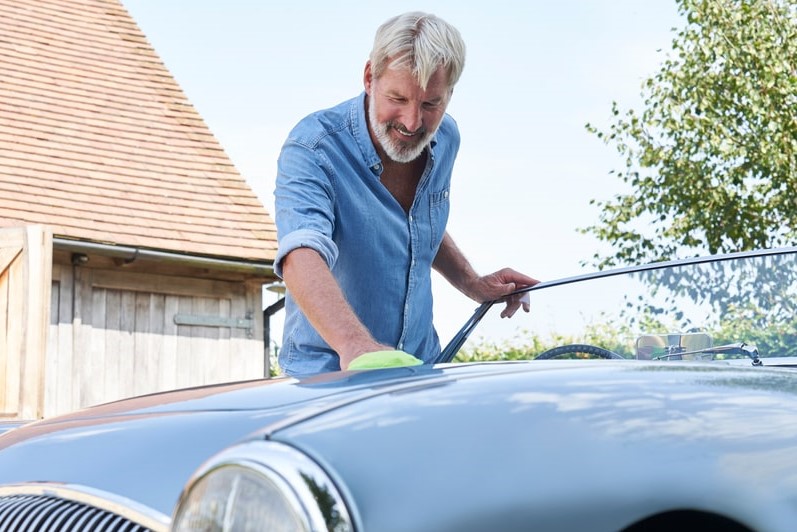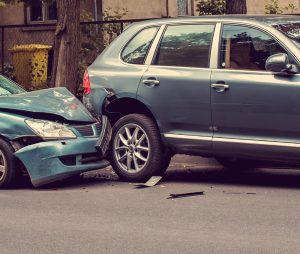Home > Car Insurance > Classic Car Insurance
Classic Car Insurance
Compare your options for classic car insurance cover in one place today.
Author
Savvy Editorial TeamFact checked

If you own a classic car or are an enthusiast with multiple classic models, it's important to protect it with the right type of insurance. Classic car insurance is specifically designed to meet the unique needs of vintage vehicles, offering features such as agreed value coverage and flexible usage options.
Whether your vehicle is 20 years old or 50, you can compare car insurance options for classic, vintage and veteran vehicles to help you find the best possible coverage for you at a competitive price. Get started today with a free, no-obligation quote.
What is considered a classic car in Australia?
The criteria for what is considered a classic car in Australia varies depending on your insurer. For instance, while some insurers may consider cars 15 or more years old a classic car, others may set this at 25 to 30 years.
There are other classifications which may be used by specialist insurers, such as emerging classic or modern classic (which is a model between a modern and classic car). If you’re unsure whether your car is considered a classic, you can speak with your insurer to determine what their classification of your vehicle is before you buy your policy.
Is there a difference between classic, vintage and veteran cars?
While some may use these three terms interchangeably, it’s important to understand that classic cars are different from vintage and veteran models. Once again, specific classifications vary between insurers, but you may find that these are split into periods such as these:
- Classic cars: between 15 and 30 years old
- Vintage cars: built in or before 1930
- Veteran cars: built in or before 1919
Because of the expense related to repairing vintage and veteran cars and the potential scarcity of materials, these are often more expensive and less commonly offered than classic car insurance.
What is classic car insurance?
Classic car insurance in Australia is a type of car insurance which is specifically designed for classic vehicles. It’s different from regular car insurance as it takes into account the unique features of classic cars, such as their age, rarity and historical significance. In terms of what it covers, classic car insurance can offer specialised coverage options, such as the following:
- Choice of repairer: classic car insurance policies typically give the policyholder the option to choose their preferred repairer to work on their vehicle in the event of an accident or damage. This can be an important consideration for owners of classic cars who want to ensure their vehicle is repaired by a specialist with knowledge of the unique features and parts of their car.
- Laid up cover: laid up cover is a type of coverage which is available for classic cars which aren’t driven on public roads. It’s designed for cars which are kept in storage, either because they’re undergoing restoration work or aren’t in use for an extended period. Laid up cover can protect the vehicle against damage from events such as fire, theft and vandalism while it’s in storage.
- Limited use cover: limited use cover is a type of coverage which is designed for classic cars which are only driven on a limited basis, such as for exhibitions, club events or occasional pleasure drives. This type of coverage may have lower premiums than standard insurance policies, as the car is considered to be at a lower risk of being involved in an accident due to its reduced usage (depending on other factors).
- Salvage rights: salvage rights refer to the policyholder's right to claim ownership of their vehicle in the event it’s declared a total loss by the insurance company. With classic car insurance, salvage rights can be particularly important, as enthusiasts may wish to use parts from the write-off to help restore other or future vehicles.
- Multi-vehicle discount: classic car insurance may also offer discounts to policyholders who insure multiple vehicles under the same policy. This can be a cost-effective way for collectors and enthusiasts to insure their entire collection of classic cars. The multi-vehicle discount can also make it easier than managing multiple policies and ensure all vehicles are protected with the same appropriate level of coverage.
What is agreed value cover and why is it important for classic car insurance?
Agreed value cover is an element of car insurance which allows you to set the value of your vehicle in advance with your insurer so you can be paid that amount in the event of a total loss or theft. This is different from market value, which involves your insurer paying you what they believe the value of the vehicle was immediately prior to it being written off or stolen.
For classic car owners, agreed value cover is particularly important because it ensures that the value of their vehicle can be protected, taking into account factors such as rarity, condition and historical significance. Without agreed value cover, your insurance company may only pay out the current market value of the car, which may be significantly lower than what you believe it’s worth.
Agreed value cover is more common with classic car insurance for this reason and can provide greater peace of mind to classic car owners that they may be able to recoup an amount they believe is more appropriate if they lose their vehicle.
Types of car insurance you can choose from
The most basic type of optional cover available, TPPD insurance can offer protection for damage caused by your vehicle to other people's property. However, no damage to your vehicle will be covered.
A step up from TPPD, TPFT insurance can also cover damage to your vehicle sustained due to a fire or theft (or attempted theft) in addition to third-party property damage if you're in an at-fault accident.
The most extensive (and expensive) form of cover, comprehensive car insurance can also offer cover for damage to your vehicle in an accident, collision and certain weather events on top of the areas TPFT covers.
The factors which can affect the cost of your classic car insurance
Age of the vehicle
Older vehicles may be more expensive to insure as parts and repairs can be harder to find. As such, you may pay more for a 60-year-old car than one which is 30 years old.
Condition of the vehicle
The better the condition of the car, the less risk it poses to the insurer and the lower the premium is likely to be. If your classic car isn’t in great condition, it may be deemed a greater road risk and increase the chances of an accident taking place or claim being made, thus increasing how much you pay for insurance.
Kilometrage
Classic cars are often driven less frequently than regular cars, so insurers may offer lower premiums for limited kilometrage policies.
Storage
Cars which are stored in a secure garage or storage facility are often seen as less risky and may be eligible for lower premiums than those which are in open air or parked on the road.
Usage
The way the car is used can affect the premium. For example, if the car is used for events or shows only (or isn’t driven at all), its premiums will be different from those for a classic car which is used every day.
Common questions about classic car insurance
There are insurance options available for classic motorbikes. However, the coverage and policy details may differ from those of classic car insurance policies, so it’s important to check with your insurer to determine whether your motorbike qualifies for coverage.
In most cases, classic car insurance will come in the form of a comprehensive policy, which offers the most overall protection of any type of vehicle cover. However, depending on the insurer, you may be able to take out third party car insurance. Compulsory third party (CTP) insurance is mandatory for all registered vehicles.
The cost of a classic car insurance policy can vary depending on a range of factors, such as:
- The make, model and value of the car (such as whether it was imported or made closer to home)
- The age and condition of the vehicle
- The driver's age and driving record
- The level of coverage selected
- How your car is stored
- Where you live and store your vehicle (such as whether you live in Adelaide or country South Australia)
- How many cars are included under your policy
There are insurance options available for modified vehicles. However, the type and extent of coverage will depend on the specific modifications made to the vehicle. It's important to disclose any modifications to the insurer to ensure that the policy provides adequate coverage, particularly in a policy with market value cover.
Helpful guides on car insurance
Compare car insurance policies with Compare the Market
Explore car insurance options by make
Select your car make and find out how much it may cost to insure, read helpful guides and compare quotes.
Disclaimer:
Savvy (ABN 78 660 493 194, ACR 541 339) provides readers with a variety of car insurance policies to compare. Savvy earns a commission from our partnered insurers each time a customer buys a car insurance policy via our website. All purchases are conducted via our partners’ websites. The integrity of our comparison service is unaffected by our partnerships with those businesses and our effort remains to bring further brands that do not already use our comparison service onboard.
Savvy’s comparison service includes selected products from a panel of trusted insurers and does not compare all products in the market. Any advice presented above or on other pages is general in nature and doesn’t consider your personal or business objectives, needs or finances. It’s always important to consider whether advice is suitable for you before purchasing an insurance policy. We always recommend readers to consult the Product Disclosure Statement (PDS) of different policies before purchasing your car insurance.










